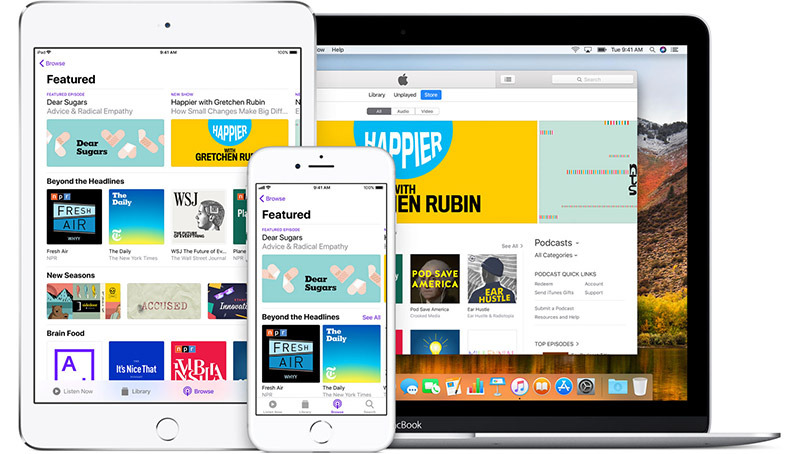Apple reportedly offered feedback on NPR's 'RAD' podcast analytics system
According to a report on Thursday, Apple employees had a hand in the development of National Public Radio's recently launched Remote Audio Data system (RAD), an analytics platform that enables content creators to gauge listener statistics. Importantly, RAD provides engagement information on money-making advertisements.
A major player in the podcasting world, NPR has much to gain from metrics provided by RAD. Beyond content polling, the system provides valuable data on whether users are listening to embedded ads on which NPR, and many other podcasters, rely as a source of revenue.
Currently, ad sales are generally calculated by gross download numbers, a decidedly crude process that stands in stark contrast to data quantification and sharing techniques championed by Facebook and Google. By providing granular data on listener habits, RAD aims to shed light on the intrinsic value of podcasts both for podcasters and advertisers.
As noted by The Verge, however, the success of RAD depends largely on Apple, which maintains the world's premiere podcasting outlet in Apple Podcasts. Citing numbers from Anchor, a podcasting creation tool, the report says Apple's platform hosts more than half of all podcast listens, while Spotify is the second-largest single repository with 19 percent of all listens. The remainder is cobbled together from smaller outlets.
Neither Apple nor Spotify have announced support for RAD, though NPR told The Verge that Apple employees "offered their feedback" on the system. What feedback Apple provided, and whether NPR took action on the input, is unknown.
As it stands, RAD inserts tags into podcasts, enabling an analytics engine to track when a listener hits a specific point in the show. Presumably, tags can be used to monitor when a user reaches an ad and, more importantly, whether said ad is played in full or skipped. RAD sends this information to the podcaster, who can use it to market their show to advertisers.
Whether Apple intends to support RAD is unknown. User privacy will likely be a major sticking point for the company, though NPR says the system does not send identifiable information to podcasters and advertisers. Still, Apple device users are accustomed to a high degree of anonymity afforded by the tech giant's consumer-first ethos, and a third-party system that tracks listening habits runs counter to expected protections.
In addition, Apple is testing its own podcast analytics service that provides granular data like when users stop listening to a given episode. Other metrics tracked include number of downloads, total hours listened, time per device, average consumption, devices subscribed and top countries.
 Mikey Campbell
Mikey Campbell











 Malcolm Owen
Malcolm Owen
 William Gallagher and Mike Wuerthele
William Gallagher and Mike Wuerthele
 Christine McKee
Christine McKee
 William Gallagher
William Gallagher

 Marko Zivkovic
Marko Zivkovic









